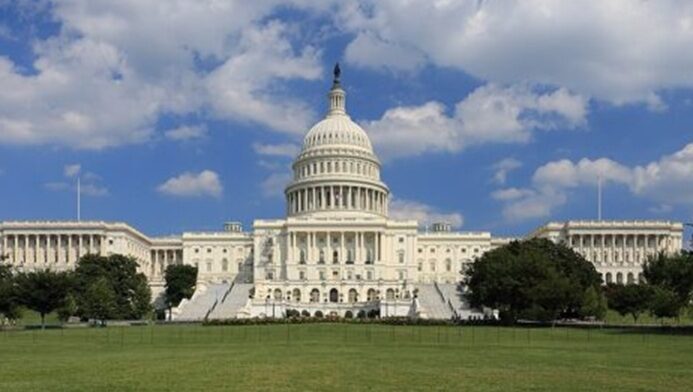Yesterday’s surprise decision by the U.S. International Trade Commission to launch an investigation into bankrupt module manufacturer Suniva’s petition for “global safeguard relief” from Chinese imports of crystalline silicon solar PV cells drew strong criticisms from most industry observers. No one reacted as quickly or as strongly, however, as Abigail Ross Hopper, the president and CEO of the Solar Energy Industries Association. After her forceful comments in the wake of the decision, she agreed to discuss her thoughts on the matter more fully with pv magazine.
This interview was edited for length and clarity.
pv magazine (pvm): What was your first thought when you heard about Suniva’s filing?
Hopper: Disappointment. We knew early on that this filing could result in the loss of tens of thousands of American jobs as Suniva’s requested trade remedy would significantly raise the price of PV panels in the United States. This would jeopardize demand for both rooftop and large-scale solar projects and cause great uncertainty in project finance. I’m not being an alarmist when I say this could be devastating to the U.S. solar industry.
pvm: There is a precedent in the United States’ for U.S. module manufacturers filing complaints about Chinese module manufacturers. Do you think there’s any basis for these complaints based on your knowledge of the industry?
Hopper: Now that the U.S. International Trade Commission (ITC) has initiated the case, it’s clear that Suniva has cleared the threshold of representing the cell-manufacturing portion of our industry. That said, the conditions that are creating inexpensive panels have to do with innovation and market conditions. U.S. companies need to continue to innovate to remain competitive. As for the market for solar cells and modules, just like with any product, prices can drop in times of oversupply, and rise in times of supply constraints. That’s the nature of global capitalism. The market will adjust over time, and policymakers should allow that to happen.
pvm: What makes Suniva’s complaint different from other attempts that have been made previously?
Hopper: The Section 201 petition is a blunt instrument in that it can damage our entire industry with no guarantee of helping Suniva or other manufacturers achieve national and global competitiveness. Perhaps that is why it is used so rarely – the last instance was roughly fifteen years ago in the steel case of the early 2000’s. The earlier cases brought by SolarWorld against China and Taiwan alleged trade law infractions by specific countries -this case is not alleging any wrongdoing, It’s also global in nature and doesn’t target at any one nation.
pvm: What do you think of the recent IHS Markit report that said if the complaint goes forward, it could contract the U.S. module market by 60%?
Hopper: Research like that, along with the array of other reports that have come out predicting the price of solar panels in the United States will double, should give decision-makers pause. Over the last decade, we’ve been driving down prices to make solar more affordable for consumers, and [have done] so through innovation and economies of scale. Last year, solar was the No. 1 source of new electricity capacity in America. Stopping this growth dead in its tracks simply does not make sense.
pvm: You came out strongly yesterday against the trade commission’s decision to investigate Suniva’s claim. What do you think drove the ITC’s decision to follow up on the complaint, and why did SEIA take such a public stand against it so quickly?
Hopper: We are the national trade association for solar and have an obligation to stand up for the 260,000 workers and more than 8,000 companies in the U.S. solar industry driving growth across every single state in the union. This case endangers that. That’s why we acted quickly. While we can’t speak to why the ITC made the decision it did, I can say that it was important to me to voice our strong opposition as quickly as possible. Suniva does not speak for our industry and, as I stated earlier, is imperiling the livelihoods of thousands upon thousands of Americans.
pvm: You also said yesterday that SEIA will continue to contest Suniva’s petition as the investigation moved forward. Can you outline what SEIA’s overall strategy is and what you’d like to see from the industry’s rank-and-file members?
Hopper: SEIA is going to fight fiercely on behalf of the solar industry every step of the way. We’re going to continue to engage with the ITC at a high level so our feelings as an industry are known. We feel confident that the Trump administration understands the importance of this issue to American jobs and innovation.
We are currently building a coalition that includes both people and organizations inside and outside of the solar industry, and this is where your readers can definitely get involved. Sign up for the Solar Power Advocacy Network and reach out to us directly to see how you can help us take a stand for solar in America.
This content is protected by copyright and may not be reused. If you want to cooperate with us and would like to reuse some of our content, please contact: editors@pv-magazine.com.








By submitting this form you agree to pv magazine using your data for the purposes of publishing your comment.
Your personal data will only be disclosed or otherwise transmitted to third parties for the purposes of spam filtering or if this is necessary for technical maintenance of the website. Any other transfer to third parties will not take place unless this is justified on the basis of applicable data protection regulations or if pv magazine is legally obliged to do so.
You may revoke this consent at any time with effect for the future, in which case your personal data will be deleted immediately. Otherwise, your data will be deleted if pv magazine has processed your request or the purpose of data storage is fulfilled.
Further information on data privacy can be found in our Data Protection Policy.